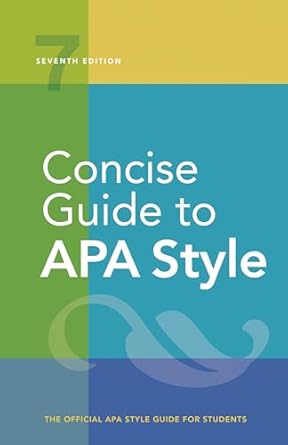[toc]
who vs whom that vs which grammar guide
Concise Guide to APA Style: 7th Edition (OFFICIAL)
Page 71 Review
Understanding ‘Who’ vs. ‘Whom’ and ‘That’ vs. ‘Which’: A Detailed Guide
Navigating the intricacies of English grammar can often feel like traversing a minefield.
One common area of confusion lies in the correct usage of relative pronouns like ‘who,’ ‘whom,’ ‘that,’ and ‘which.’ This guide, inspired by a concise explanation, aims to clarify these points with examples and explanations.
‘Who’ vs. ‘Whom’: The Substitution Test
The excerpt emphasizes a simple yet effective method to distinguish between ‘who’ and ‘whom’: the substitution test.
According to the text, “if you can substitute ‘he,’ ‘she,’ or ‘they,’ then ‘who’ is correct.” This test provides a practical approach to ensure grammatical accuracy.
Consider this example from the text: “The participants who passed the exam were given course credit.” To verify the correctness of ‘who,’ we can substitute with ‘they’: “They passed the exam and were given course credit.” Since the substitution works, the original sentence is correct.
Conversely, the text highlights an incorrect usage: “Eligible participants were mothers, each of who had a child under the age of 21 with cancer.” Applying the substitution test, we get: “Eligible participants were mothers; each of they had a child under the age of 21 with cancer.” This substitution is clearly incorrect, indicating the original sentence requires ‘whom’ instead of ‘who.’
The Rule for ‘Whom’
The excerpt continues by stating, “if you can substitute ‘him, her,’ or ‘them,’ then ‘whom’ is correct.” This complements the ‘who’ rule, providing a comprehensive test for both pronouns.
The text provides a correct example: “Eligible participants were mothers, each of whom had a child under the age of 21 with cancer.” Substituting ‘whom’ with ‘them’ yields: “Eligible participants were mothers; each of them had a child under the age of 21 with cancer.” This substitution is grammatically sound, confirming the correct use of ‘whom.’
An incorrect usage is illustrated with the sentence: “The participants whom passed the exam were given course credit.” Attempting the substitution, we get: “Them passed the exam and were given course credit.” This is grammatically incorrect, proving that ‘who’ should be used in this case.
‘That’ vs. ‘Which’: Restrictive vs.
Nonrestrictive Clauses
The second part of the excerpt delves into the usage of ‘that’ and ‘which,’ connecting them to restrictive and nonrestrictive clauses.
The text explains that “Relative pronouns (e.g., ‘who, whom, ‘that,’ ‘which’) introduce an element that is subordinate to the main clause of the sentence, and that subordinate clause may be either restrictive or nonrestrictive.”
Restrictive clauses, also known as ‘that’ clauses, are essential to the sentence’s meaning.
The excerpt emphasizes that “Restrictive clauses—also called ‘that’ clauses—are essential to the meaning of the sentence.
Restrictive clauses are not set off with commas.” These clauses limit or define the noun they modify.
The example given is: “Therapist self-disclosure that conflicts with the patient’s story might hinder the therapeutic process.” The text explains that “only self-disclosure that conflicts with the patient’s story, not all self-disclosure, might hinder the therapeutic process.” The ‘that’ clause is crucial; without it, the sentence’s meaning is drastically altered.
Understanding the Nuances
Mastering the use of ‘who’ vs. ‘whom’ and ‘that’ vs. ‘which’ involves more than just memorizing rules.
It requires understanding the function of each pronoun within the sentence and how it affects the overall meaning.
The substitution test provides a valuable tool for ensuring correct pronoun usage.
Recognizing the distinction between restrictive and nonrestrictive clauses clarifies when to use ‘that’ and ‘which’.
While this guide draws inspiration from the provided text, further practice and exposure to various writing styles are essential for developing a strong command of these grammatical concepts.
Pay attention to how these pronouns are used in well-written texts and actively practice applying the substitution test in your own writing.
Through consistent effort, you can confidently navigate these grammatical challenges and elevate the clarity and precision of your communication.
Buy full ebook for only $18: https://www.lulu.com/shop/american-psychological-association/concise-guide-to-apa-style-7th-edition-official/ebook/product-rmzpq54.html?page=1&pageSize=4
Who Vs Whom That Vs Which Grammar Guide
Read more: APA Style Punctuation Guide: Colons, Dashes & Hyphens


Leave a Reply